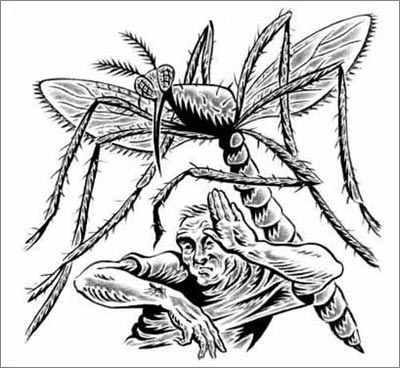Abstaining from Unwholesomeness # 2
The wise should not kill or torture other people and animals.
Developing Conscience as Protection from Unwholesome Behaviours
1. (Hiri) means: being ashamed of unwholesomeness. Even if others don’t see what we are doing, but we bear still witness to our own unwholesome deeds it will cause us to be discontent, to feel regret, or to have an impure mind, so we must abstain from doing that unwholesome deed.
2. (Otappa) means: fear of the consequences of unwholesomeness that will follow us if we commit unwholesome deeds. Thus we abstain from doing unwholesome deeds.
Assume that we see a sheet of iron smeared with excrement. We don’t want to touch it in fear of the excrement staining on our hand. This feeling can be compared to hiri, which is shame of unwholesomeness.
Assum that we see an iron stick that is glowing of heat. We are afraid to touch it in fear our hand will get burned. This feeling can be compared to otappa, which is being afraid of the consequences of the unwholesome deeds.
“A person who abstains and avoids and avoids unwholesomeness will embrace the refined Dhamma and will be considered as a person with great virtues.”
Realize how hard the Lord Buddha had to pursue perfections in order
to attain enlightenment and how hard the He tried teaching the world.
Shame of Unwholesomeness
Can be Developed by Recollecting
1. Your own human status and the status of your family
Remember that you are a human being and not a savage. Having attained such a noble birth, how can we kill, steal or commit adultery?
2. Your own age
Remind yourself that at your age you ought to know better than to mess around with various sorts of immorality.
3. Your own past good deeds
Think of how you can avoid spoiling the good deeds you have accrued form the past.
4. Your own knowledge.
Think of how reckless it would be to do this unwholesome deed in spite of all you have learned from the Buddha’s teachings.
5. The Lord Buddha.
Realize how hard the Lord Buddha had to pursue perfections in order to attain enlightenment and how hard the He tried teaching the world.
6. Your own teacher.
Think of your academic Dhamma teachers and think how they would feel about what you are doing.
If we were to do an unwholesome deed it would not be
worth doing it because we might be reborn in the hell realms after.
Fear of the consequences of unwholesomeness can be developed by recollecting:
1. Criticism.
If we were to do an unwholesome deed it would not be worth doing it because others would criticize us and we could lose our reputation.
2. Retribution
If we were to do an unwholesome deed it would not be worth doing it because we would only be punished later on by receiving the demerit retribution.
3. Hell Realms
If we were to do an unwholesome deed it would not be worth doing it because we might be reborn in the hell realms after.
The wise person should be content with his spouse, not
commit adultery or sexual intercourse outside the marriage.
Warnings
1. Doing unwholesome deeds is like walking along the stream. It is easy to walk. Everybody is ready to follow the streams of desire. If we cannot properly control ourselves, we could be a slave to our desire. Doing things accordingly to the power of the desire involved, we will only suffer at the end.
2. Doing wholesome deed is like walking against the stream. We must be patient, be determined, and be careful not to slip or fall over. Doing wholesome deeds is to act against our desires by not acting as we normally would based on right and wrong. Trying not to be a slave of our desires is difficult, we need to be cautious and persevere in order to attain inner happiness at the end.
3. Being neutral is like remaining still in the stream, sooner or later we will float away with the stream. Such a person thinks that “I am happy where I am, I never bring anyone trouble, and I am not interested in doing good deeds.” This meams that they do neither good nor bad deeds. They do not study the Dhamma, nor drinking alcohol, but soon they will have a chance to commit unwholesome deeds since the nature of the mind is always ready to deteriorate driven by desires. Thus, a person with this attitude is a reckless person.
4. Therefore we do not only have to abstain from unwholesome deeds that reduce the good quality of the mind. We also have to elevate the mind consistently by trying to cultivate as many good deeds as possible as being generous (Dana), keeping precepts(Sila) and meditation 9Bhavana).
He/She should not consume intoxicants which lead to the deterioration of the quality of the mind.
The Benefits from Abstaining from Unwholesomeness
1. Be free from retribution and danger.
2. Receive more good retribution.
3. Be free from disease or illness.
4. Be a careful and non-recklessness person
5. Having a greater faith in the teaching of Buddhism
6. A stronger and brighter pure mind with a higher level of virtues.
“ The wise person, who foresees the danger in all hell realms, should abstain from all unwholesome deeds and observe the precepts with perseverance. The wise should not kill or torture other people and animals. He should not tell a lie, nor should he or she take the possessions of others without permission. The wise person should be content with his spouse, not commit adultery or sexual intercourse outside the marriage. He/She should not consume intoxicants which lead to the deterioration of the quality of the mind.”
Meditation - Related Articles
" />
" />
" />
" />
" />
" />
" />
" />
" />
" />
" />
" />
" />










